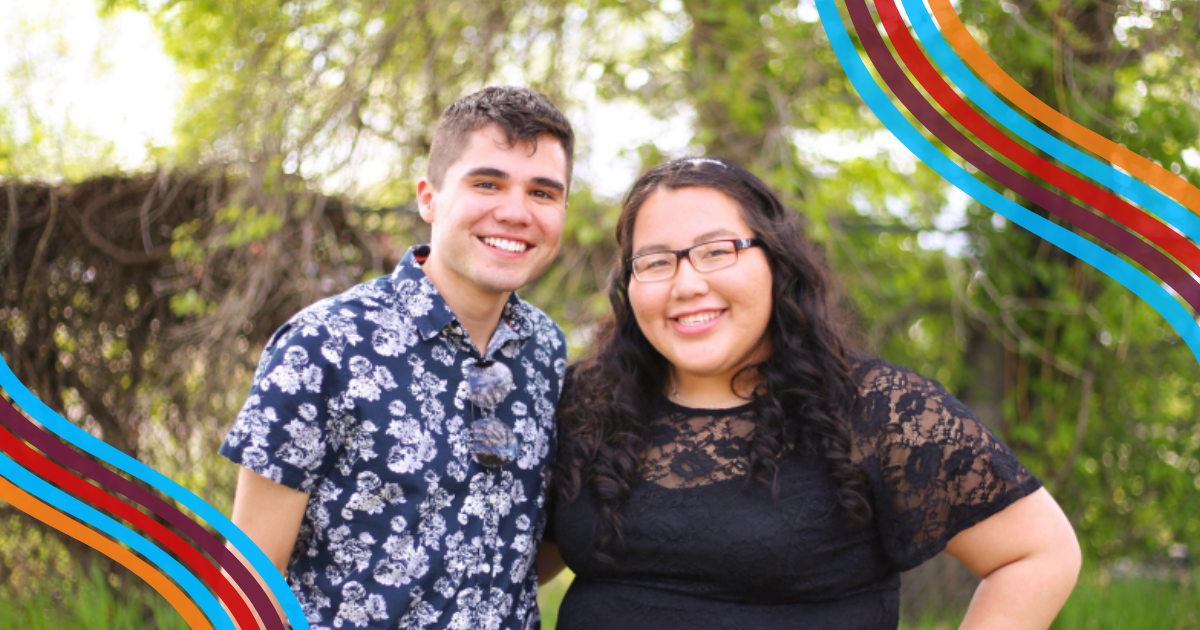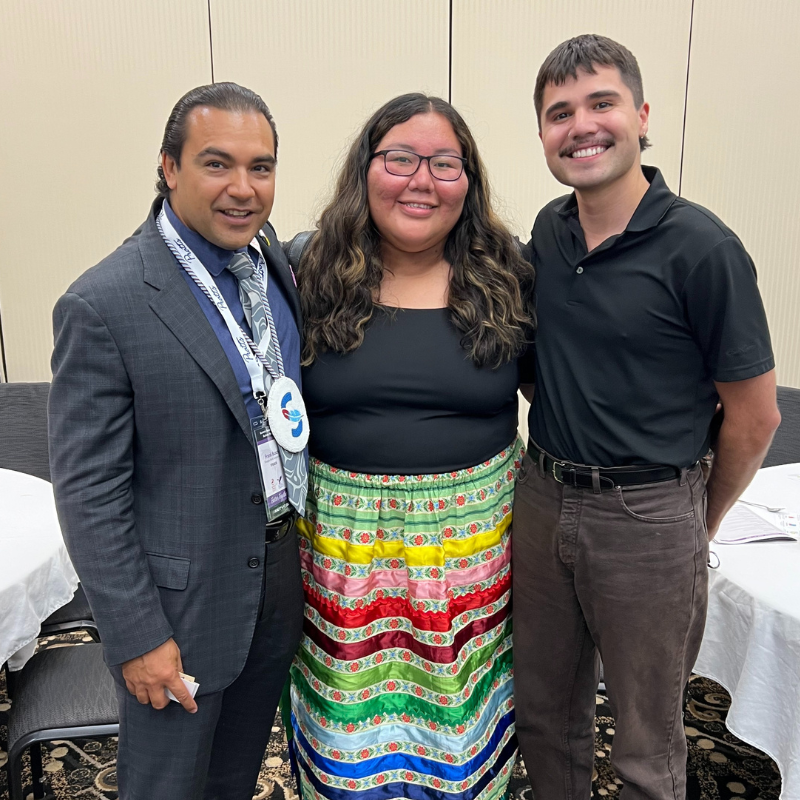Navigating identity as a young Indigenous person

SN Community Analysts Emily Huntinghawk and Dylan Peyachew take space to reflect on what it means to them to be young Indigenous people navigating ‘two worlds’.
Emily
To me being Indigenous means being resilient and proud despite everything that has happened and continues to happen to Indigenous people. It took me a long time to get to that point though. I grew up walking in two worlds; I was living in my community, going to ceremonies, listening to my family speak Saulteaux, learning protocols and language and dancing at pow-wows. On the other hand, I was going to school in a small town and later on in a city away from my family and community, playing every sport imaginable, participating in things like 4-H and tap classes and being one of very few Indigenous youth to be doing those things. I kept both parts of myself completely separate and it was tiring. In my two worlds, I had different friend groups, different memories and experiences and was much more open when I was doing things related to my culture. I remember always being so hard on myself when it came to concealing this part of me when I was in school or hanging out with my peers because they did not sign up to be friends with someone who was incredibly Indigenous. I was not ashamed of being able to do all the things that I did growing up because at an early age I learned about the horrific acts of assimilation and I knew that it was a responsibility and a privilege to carry on those important teachings but it was hard when you’re trying to ‘fit in’ with non-Indigenous people growing up. I definitely had a full blown identity crisis at a young age but I am proud to have broken down the walls I built hiding myself.
As I got older and particularly when I went to university, I found some amazing people who had similar experiences as me and we were able to make space for ourselves. A space where we could be ourselves fully without the need to censor what makes us Indigenous such as the loud laughs, endless jokes and even the shared trauma. I found myself seeking the roots I had in my culture and was able to reconnect on a deeper level and integrate both of my worlds together. As I grew, my worlds shifted from school and sports to a professional career and a social circle and I was able to continue my work of being comfortable being a proud anishinaabekwe (Ojibwe woman). By any means I do not have it all figured out but on this journey I’ve learned to ask questions, listen with an open heart, to be appreciative of everything, to grant myself grace because the younger me definitely deserved a break and above all else, I’ve learned to be proud.
Dylan
Trying to encapsulate what being Indigenous means to me initially felt difficult. An entire lifetime of memories, thoughts, and feelings swirl around as I ask myself that question. I’m immediately brought back to family trips to our reserve where my cousins and I would run through the trees playing kick-the-can, awaiting our uncles to return from a day of fishing. I think of attending pow wows with my Koko followed by baking with my aunties where I would laugh until my belly hurt, eagerly awaiting more of their stories. Simply, being Indigenous was the feeling of belonging; being with family and being apart of a community of people where your race/identity was not up for debate or even a point of discussion.
Off reserve, I’ve struggled with the concept of identity for as long as I can remember. I was surrounded by people (both peers and teachers) who doubted my identity and almost applauded me for being in the city. It was truly a bizarre feeling as I was always excited for the next time I’d find myself in Skownan with my family. I always feel like these racist ideas were embedded in me at a young age and majorly contributed to the detachment from my Indigenous identity. After all, I no longer attended ceremony, I didn’t speak the language or know our history as Ojibwe People other than past atrocities, so who was I to disagree?
But as I matured and continued to expose myself to new perspectives throughout university and opened the dialogue with my family, those walls I built slowly degraded. Since then, I’ve slowly established a renewed sense of belonging, something that I get to own and continue developing for myself. Being Indigenous was once about finding identity, but it has become so much more, now focussing on reconnection and relearning. I’ve found resources to help learn our language and I have the great pleasure of using my skillset to help improve the lives of Indigenous Peoples here at SN. I feel immense pride in saying that I am Indigenous and I am excited to continue exploring that for myself. Our people are beautiful and resilient, enriched with culture and have a deep, unbounded connection with this Earth and it’s with that in mind that I will continue to base my actions.
